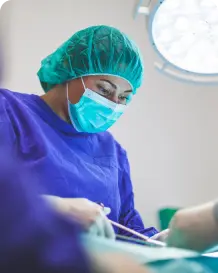Abscess Removal Surgery , Procedure And Aftercare
An abscess surgery is a surgical procedure used to drain the pus accumulated within the abscess. Learn more about the drainage of the abscess Surgery . An abscess surgery is a surgical procedure used to drain the pus accumulated within the abscess. Learn more about the drainage of the abscess Surgery .
Happy patients
 50+
50+
Expert surgeons
Personal Assistance







